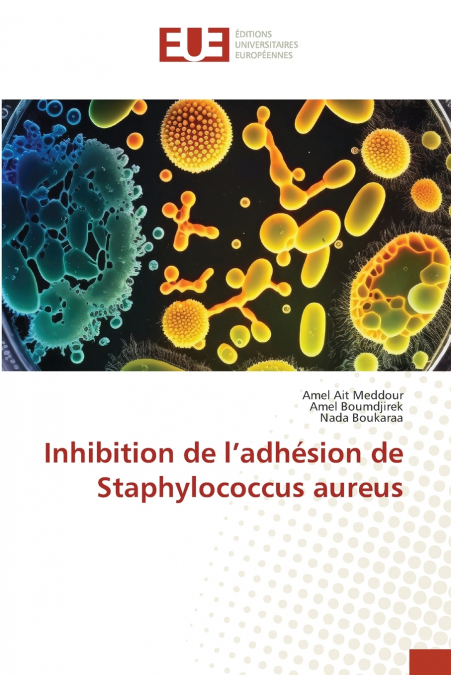
Amel Ait Meddour / Amel Boumdjirek / Nada Boukaraa
Staphylococcus aureus, un pathogène ayant la capacité de former un biofilm sur les surfaces des équipements, et régulièrement rencontré dans de très nombreux environnements, en particulier ceux de la chaîne alimentaire. Les biofilms staphylococciques fournissent un important facteur de virulence pour ces bactéries et sont particulièrement connus par leurs effets négatifs. Parmi leurs impacts négatifs les plus connus, les contaminations de produits alimentaires ce qui est à l’origine de TIA et la biodeterioration des matériaux. Les bactéries lactiques sont utilisées pour leurs différentes propriétés. Elles ont la capacité de produire lors de leur croissance des composés actifs à savoir les acides organiques, le H2O2, le CO2 et des substances naturelles de nature protéique douées d’activité antagoniste à l’encontre d’un grand nombre de germes pathogènes et d’altération. C’est pour cette raison que ces bactéries et/ou leurs métabolites sont proposés en industries agroalimentaires comme un moyen de lutte contre la formation de biofilms négatifs.